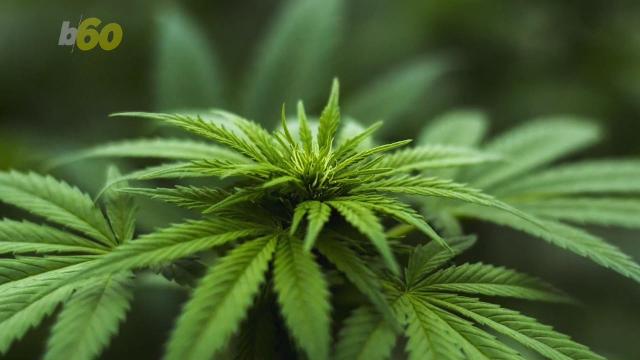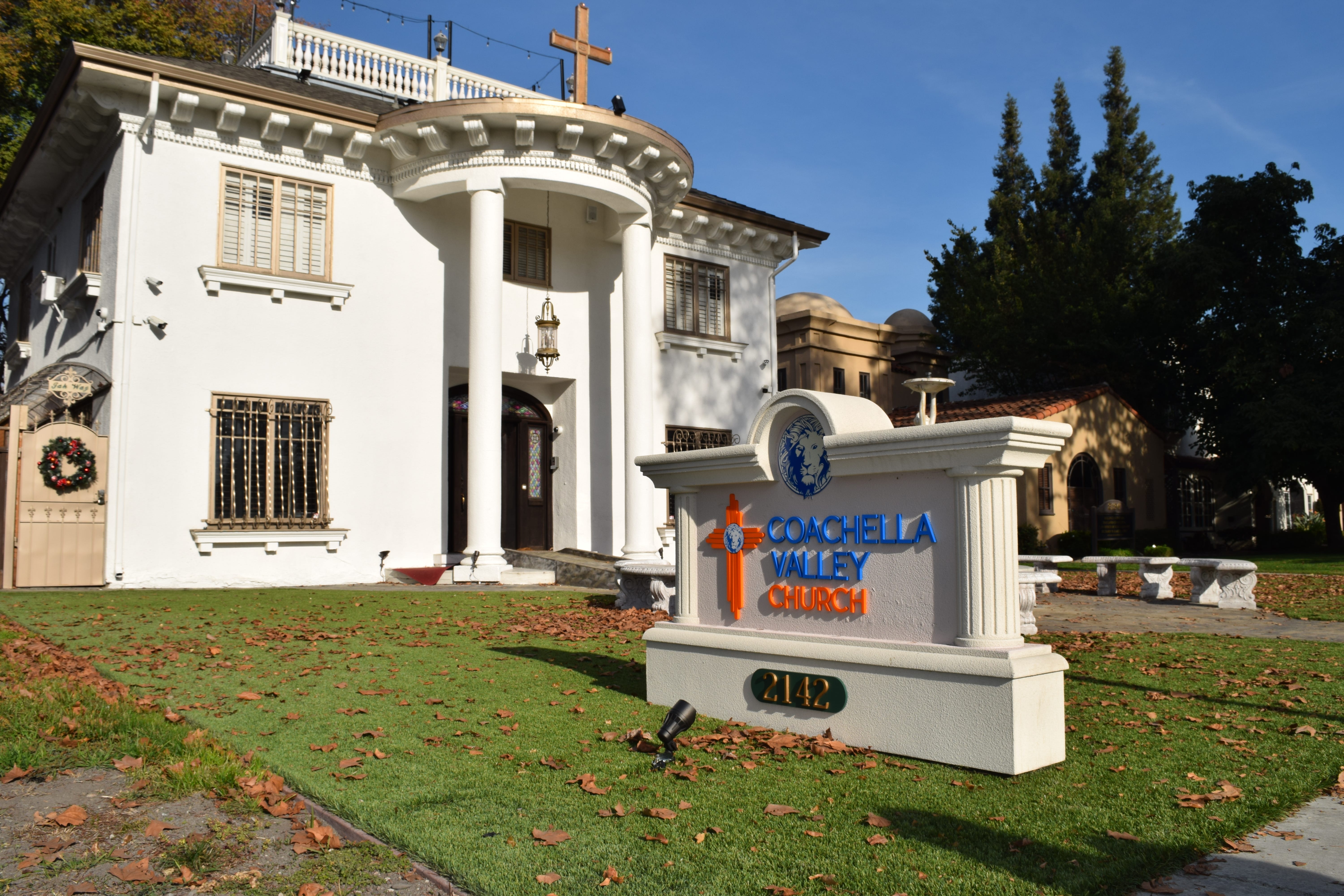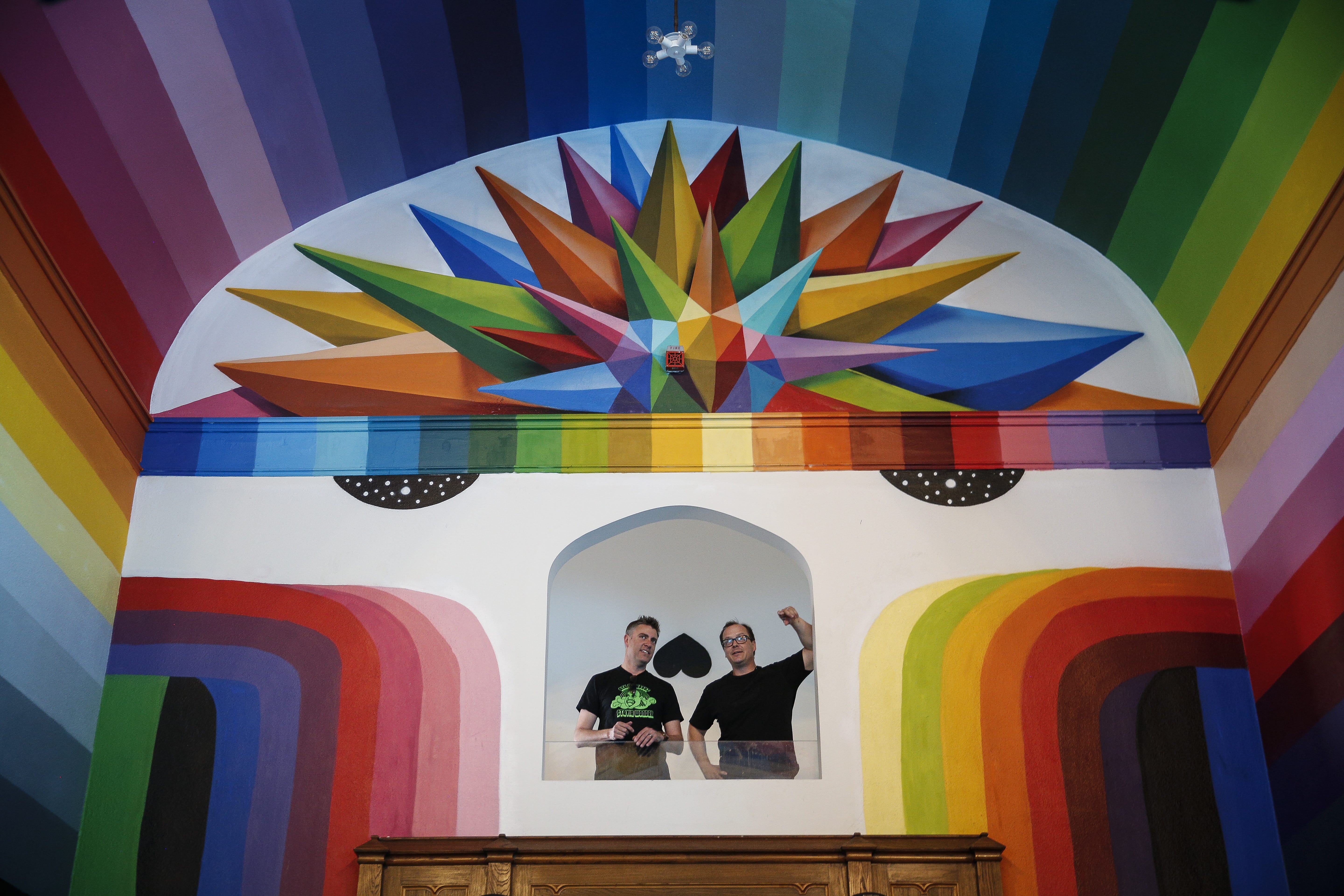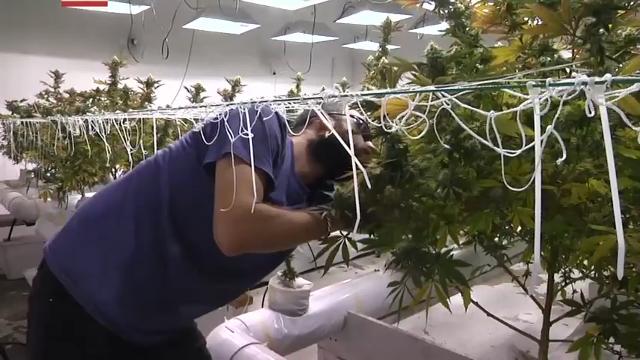At 'pot churches,' marijuana is the sacrament
Author: Barbara Feder Ostrov, unknown
Published: 12:49 PM EST December 22, 2017

SAN JOSE, Calif. — Services at the Coachella Valley Church begin and end with the Lord’s Prayer.
In between, there is the sacrament.
“Breathe deep and blow harder,” intoned Pastor Grant Atwell after distributing marijuana joints to 20 worshipers on a recent Sunday. “Nail the insight down, whether you get it from marijuana or prayer. Consider what in your own life you are thankful for.”

Despite its mainstream Christian trappings, the Coachella Valley Church in San Jose, California, describes itself as a Rastafarian church.
Kaiser Health News
A man wearing a “Jesus Loves You” baseball cap and toting a shofar, piped up. “Thank you, God, for the weed,” he called out. “I’m thankful for the spirit of cannabis,” a woman echoed from the back. “I am grateful to be alive,” said another young woman, adding that she had recently overdosed — on what, she did not say — for the third time.
The small room, painted black and gold and decorated with crosses and Rastafarian symbols, filled with pungent smoke after an hour-long service of Christian prayers, self-help slogans and inspirational quotes led by Atwell, a Campbell, Calif., massage therapist and photographer.
Despite its mainstream Christian trappings, the Coachella Valley Church describes itself as a Rastafarian church, which is tough to define. Originating in Jamaica and combining elements of Christianity, pan-Africanism and mysticism, Rastafari is a political and religious movement with no central authority. Adherents use marijuana in their rituals.
The church’s leaders claim that religious freedom laws give them the right to offer marijuana to visitors without a doctor’s recommendation or abiding by regulations. Some authorities beg to differ.
As more states ease access to marijuana, churches that offer pot as a sacrament are proliferating, competing with medical marijuana dispensaries and pot shops in the few states that have legalized recreational weed. While some claim Rastafari affiliation, others link themselves to Native American religious traditions.
More: Coachella wins first fight in war against unlicensed pot dispensaries claiming to be churches
More: You can’t sell pot in Coachella. But two 'churches' say cannabis is their holy sacrament
The churches are vexing local officials, who say they’re simply dispensaries in disguise, skirting the rules that govern other marijuana providers, such as requirements to pay taxes.
In California, which legalized medical marijuana in 1996 and is preparing for sales of recreational marijuana to begin Jan. 1, churches tied to marijuana use have recently popped up in Oakland, Roseville, Modesto and San Diego, Orange and Los Angeles counties. A few have been shut down by law enforcement.
“I’m not going to say they’re not churches, but to the extent that they’re distributing marijuana, they’re an illegal dispensary, in my view,” said San Jose City Attorney Rick Doyle.
Doyle has requested a permanent legal injunction to stop the Coachella Valley Church from providing marijuana, and a court hearing is set for Jan. 22. He recently got a court order to shut down operations of a similar church, the Oklevueha Native American Church of South Bay, he said.

DENVER, CO - APRIL 20: Colorado Cannabis Company and Pure Marijuana Dispensary co-owners Frank Quattrone (left) and Ethan Borg, both of Denver, Colorado, look out over the cathedral area during the opening of the International Church of Cannabis on April 20, 2017 in Denver, Colorado. The opening coincides with 420 Day celebrations advocating for the legalization of cannabis nationwide.
Marc Piscotty, Getty Images
Nationally, such churches have opened in Indiana, where marijuana remains illegal, and Michigan, where medical marijuana is allowed. Even in Colorado, which legalized pot in 2012, the “International Church of Cannabis” is testing the limits of state and city rules on consuming marijuana in public.
Marijuana churches typically require people to purchase a membership, then give or sell them marijuana and related products. They may ask for ID such as a driver’s license but don’t require a doctor’s recommendation or medical marijuana identification card.
The churches rely on court rulings that made it possible for some groups, including Native Americans, to use federally banned drugs like peyote in religious ceremonies. Despite these rulings, courts have thus far rejected religious groups’ right to use marijuana, still illegal at the federal level, said Douglas Laycock, a University of Virginia Law School professor specializing in religious liberty issues. Yet, he said, as more states legalize marijuana, courts may regard marijuana churches’ rights more favorably.
“Legalization changes everything,” Laycock said. “Religious use may not violate state law in some of these states. And if it does, legalizing recreational use but not religious use clearly discriminates against religion.”
More: Quality of life: 25 healthiest communities for retirement
More: 'Cornbread Mafia' leader pleads guilty in pot probe

Watch Video
Whether the Coachella Valley Church can continue preaching the power of pot remains hazy. It operates in a 1925 San Jose mansion that formerly housed the Amsterdam’s Garden medical marijuana dispensary, shut down last year by San Jose city officials in a citywide crackdown on dispensaries.
City officials have determined that some of the people who ran Amsterdam’s Garden now operate the Coachella Valley Church, Doyle said.
Church leaders at first agreed to be interviewed but then did not respond to subsequent emails. A man videotaping the recent service said the church opened in May. He gave his name as Dryden Brite, but also goes by Xak Puckett and has been described in media reports as a former director of Amsterdam’s Garden.
He described the back room where marijuana products were sold as the church’s “gift shop,” then declined to answer further questions. About half of the churchgoers left the worship room immediately after receiving their sacrament. Some headed straight to the gift shop.
Others remained to finish their joints and chitchat.
Marco, 29, a veterinary technician from San Jose who declined to give his last name, attended with his husband. He has a medical marijuana card and said marijuana helps him with bipolar disorder, depression and anxiety. He grew up Catholic and felt that the Roman Catholic Church disapproved of his sexual orientation and marijuana use.
“Honestly, this has been the most life-affirming church I’ve ever been to,” Marco said. “Here there are true believers in cannabis — if not the faith.”
California Healthline is a service of the California Health Care Foundation produced by Kaiser Health News, an editorially independent program of the Kaiser Family Foundation.

Copyright 2017 USATODAY.com
No comments:
Post a Comment